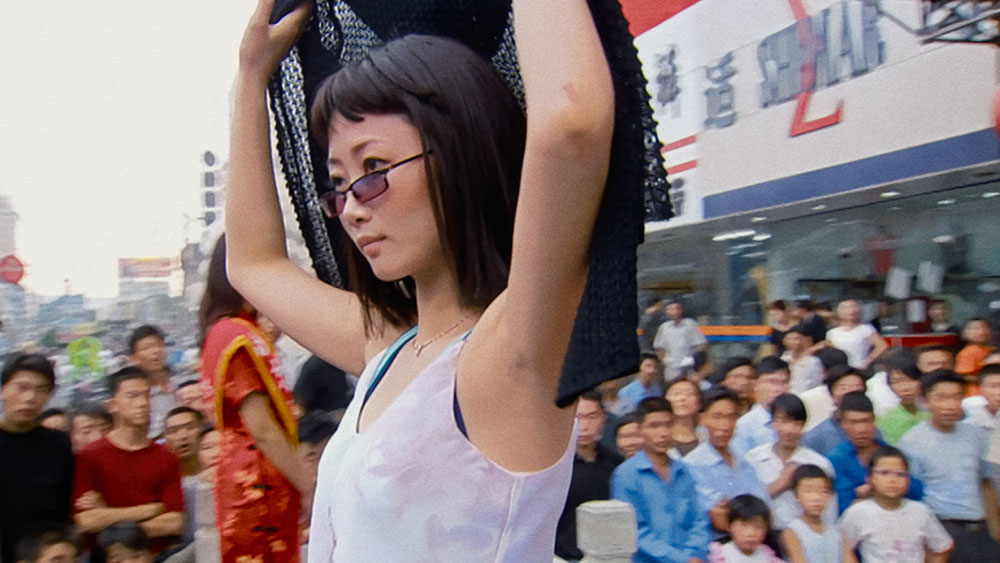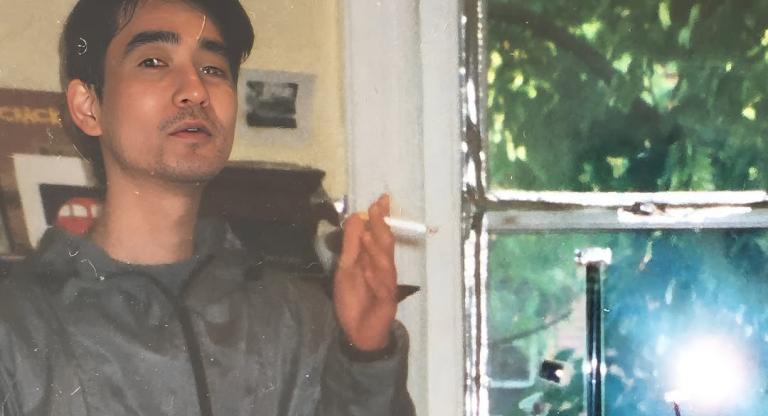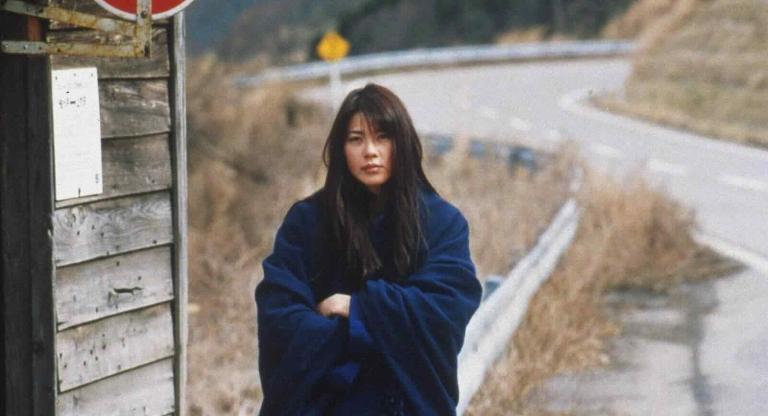Jia Zhangke has been collecting footage for his films as he’s travelled across China for over 22 years. When the Covid-19 pandemic interrupted his routine, he thought to wrap the process up. An addendum was filmed for what became Caught by the Tides (2024), stringing together all of his fragmentary observations into a film that resembles what the cultural critic Raymond Williams calls a “structure of feeling”: something that captures the fleeting experiences that have visited a place into a totality, one that escapes ordinary language but proves meaningful for those who paid attention to the silent changes over time.
The reality that, since 1978, most discussions around class in China have been officially framed around the depoliticized term “strata” (evidenced in the conversation below) does not diminish the disorienting impact this period has had on various social groups. In Caught by the Tides, the speed and magnitude at which such an impact was felt are not so much shown by images and sounds as they are by the rapid, discontinuous transitions between them. If, as Jia wrote in his essay “The Age of Amateur Cinema Will Return,” conscience and sincerity are crucial to filmmaking, then the representation of any era on film should include the amateur forms that people themselves were learning to express themselves during that era. It’s for this reason that pop music and DV-footage, two then-exciting new forms used by the “free-spirited generation” (the direct translation of the film’s title) to compensate for the loss of their place-based identities in the wake of China’s decision to join the World Trade Organization in 2001, were chosen by Jia to reconstruct their mental world in his latest film.
However, technology that might be exciting at first can also turn into a source of discomfort or alienation. That’s the case with Douyin, or TikTok, as seen near the end of Caught by the Tides. As the hunger for self-expression morphs into an appetite for self-branding, one could try to reorient by looking for familiarity in the old. But if one can no longer return to the place of comfort that was itself a unique product of its time, then how does that desire motivate people to produce new places, real or virtual, with what they have at their disposal? Perhaps Jia sought to look for answers in his own archival footage of this period to do just that.
Ahead of Caught by the Tides’s theatrical rollout in the United States, I spoke to Jia Zhangke about amateur cinema, identity production, and national memory at the end of an era for China and the world. This interview has been translated into English and edited for clarity.
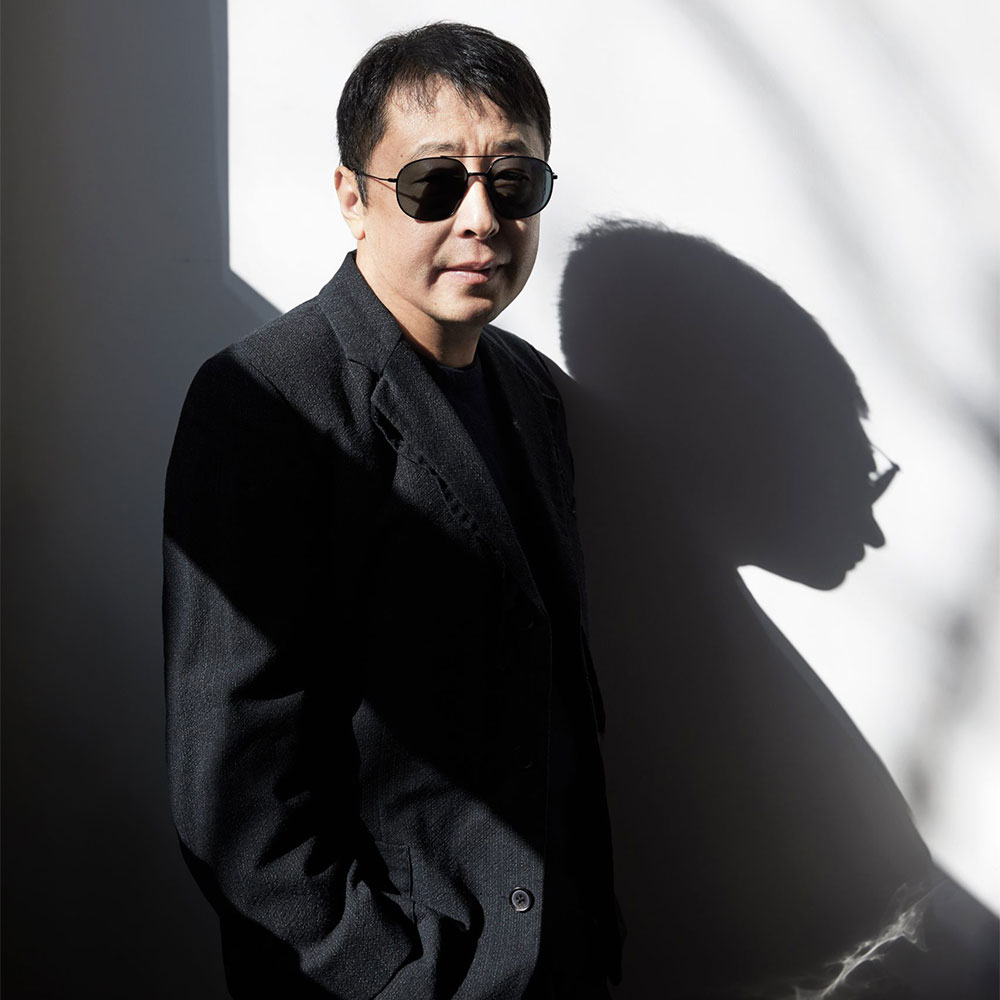
YL: In 2003, you wrote about how the future of cinema lies in amateur cinema. In retrospect, what differed from your expectations?
JZ: I feel like it has indeed been developing as I expected. [Laughs] The so-called amateur cinema really just consists of those lively creations outside of large, rigidified production systems. In the past, large production companies created films in a commercialized, formulaic way, whether in China or outside of China. With the rise of independent cinema in China, many young people can use film to express themselves. Today, we have already seen that most young directors are working within an independent production system. From this point-of-view, my hypothesis has basically become real.
YL: Compared to when you filmed The World [2004], is amateur cultural production creating specific trends in relation to localization and globalization? For example, in terms of the rural/urban difference, are there more and more filmmakers from the countryside?
JZ: Yes, one thing right now is cross-occupation. Previously, only national film production studios and the Beijing Film Academy developed talents. Now, many cross-occupation filmmakers, such as writers, doctors, and people from all walks of life, have found ways to express themselves. They all have successful examples. This ruptured from a previously conservative state [of the arts]. Another thing is in terms of regional territory. In the past, filmmaking concentrated in big cities like Beijing and Shanghai because national film production studios were located there. But now, almost every province in China produces films. Last year, there was a well-made film by a director who used to be a security guard.
YL: Since we are talking about cross-occupation, you once mentioned when reflecting on 24 City [2008] that the worker identity has disappeared alongside state-owned factories. But now that the working strata are gaining cultural production abilities, are there any observable changes to their self-identification?
JZ: If we are just talking about the working strata, the biggest change is that everyone used to work for state-owned factories, so the worker and the state-owned factory had a lifelong relationship. From when you entered the factory to when you retired, your life, including your children’s education and everything, operated within the organization of the state. When the planned economy became the market economy, we began to have a new group of workers known as dagongzhe in China. Dagongzhe have a sense of mobility. They would not serve one factory. If they did well in a place, they would stay for longer; if not, they would move to another factory. This kind of change has been quite significant and, on some level, added a sense of precarity [to their socioeconomic situation].
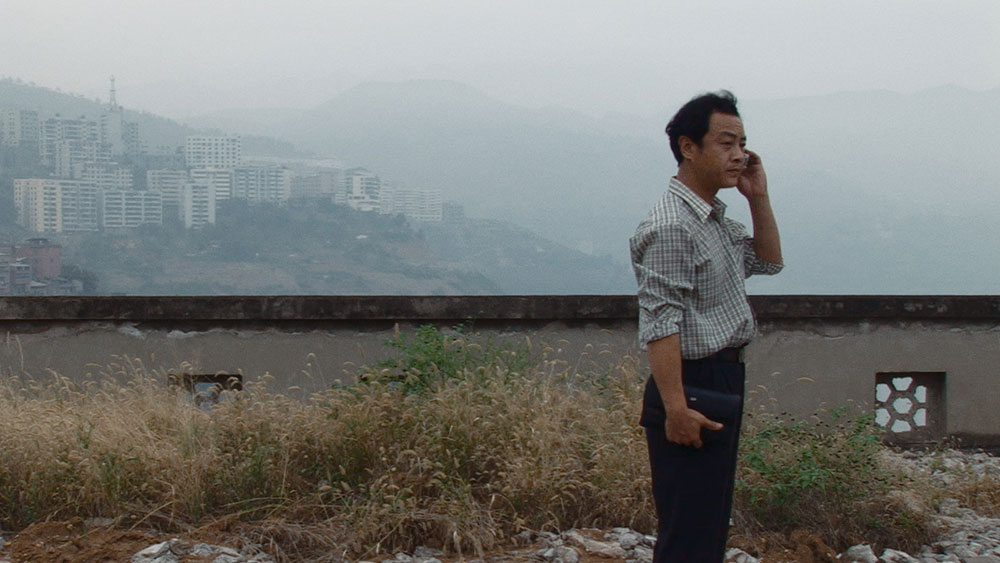
YL: Would some older identities become more important once again? For example, village affiliations or hometown associations?
JZ: Hometown associations mostly exist in the big cities. Because hometown associations are formed after one leaves one’s hometown. For example, if we are all from Shanxi, we would have a Shanxi hometown association after we move to Beijing. We would not organize one in Shanxi locally, because we are all native there. But, a lot has changed in terms of the identity of peasants.
Fewer and fewer people rely on land. They become dagongzhe. The real identity of the new workers I just mentioned is peasant, but they gain a new identity when they enter cities and factories. So sometimes it is hard to tell if they are peasants or workers. They also own land at home through their families, but it is insufficient to sustain themselves. The cities also need a lot of labor power, so they leave their homes, the small towns, for work in the big cities. If you have seen Wang Bing’s most recent documentaries, they are all about this stratum.
YL: I have actually interviewed him about them. [Laughs] Would you think about your artistic creation through the framework of national narrative or class narrative?
JZ: I would not think so big. My attention is still on the encounters and situations of particular people in social transitions. From this starting point, if you can arrive at a form of truth at the level of reality, then it would indeed form a sort of national memory. I have been experiencing China. Since many things change quickly, portraying the life of us Chinese people concurrently can become, to some degree, a part of the national memory of a historical stage.
YL: I often sense a tension between social realism and socialist realism in your films. For example, you often feature portraits of Mao, and similar remnants of socialist imagery, in the background of stories that deal with social injustice or inequality.
JZ: I understand what you mean, because China’s transformation has involved economic, spatial, environmental, and technological transformations, as well as transformations in thought. I have always focused on the question of modernity for people. And, if we have this prompt, there must be a multiplicity of concepts. Chinese society is complex. We respect this complexity and do not avoid it. Including, for example, for some people, that Mao’s ideology is still their mental world. But, many other people have bid farewell to his ideology. These things exist simultaneously.
To me, filmmaking is not my personal hobby or an elaboration of my judgment, but a truthful portrayal of an entire mental world. These [concepts] exist and exist as a part of said world. The tension in Chinese society takes on this appearance between them. Different concepts, as well as different thoughts and debates push and pull within this transformation.
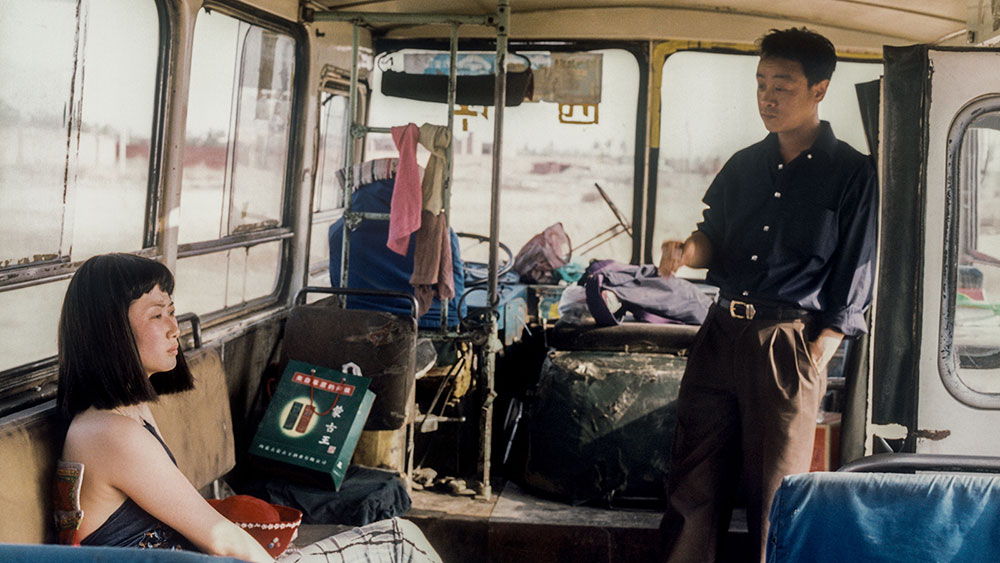
YL: I have heard you believe Caught by the Tides to be the end of the second stage in your career?
JZ: I did not think too much about whether it was the end of a stage for myself, but I feel like it was the end of me presenting an era in China and the world, and the beginning of a new one. [This transition] has political causes, economic factors, and technological causes. When I was editing the film, I saw that it included the appearance of the mobile phone, the mobile internet, and life with the internet. Artificial intelligence also appeared in our lives when the film was almost complete. I have thoroughly experienced the transition from not having the internet to having the internet—the huge changes it has had on life, on emotions. Now we are moving from not having artificial intelligence to having artificial intelligence.
There is an obvious generational change or update in technology taking us into a new, unknown world. Also, the 20-something years over which I worked were defined by a process of globalization, accompanied by international interactions, exchanges, and the combination of international resources. From the start of the pandemic, it was clear to me that globalization was ending. These political and technological reasons all gave me a strong feeling when I was making the film. Since our lives are going to enter a new, unknown era, then cinema has to pay attention to this new era, to experience this new era. Naturally, creative processes will change.
YL: If the next era is going to be characterized by a kind of localization, are there any groups you are paying special attention to?
JZ: The group distinctions are now… what we may call flat. Different groups are faced with similar situations in the present. A problem that used to belong to only one group in the past may have become a public problem. In this case, I still want to experience the new dilemmas and problems faced by people. Perhaps they are not distinguished by groups. Sometimes, we have to face them together.
Caught by the Tides is now showing in select theaters across the country. Alongside its national rollout, Criterion Channel is also presenting “Directed by Jia Zhangke,” a series dedicated to the filmmaker’s career.
